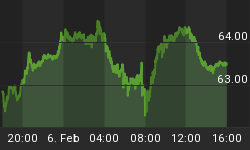The patient is the United States and the diagnosis is "Asia shock."
It is a psychological disease with physical symptoms and no known cure. However there are therapies, therapies of trade, diplomacy and fiscal restraint at home.
As President Barack Obama jetted around Asia, he may have pondered not so much the economic power that waits East of Suez, but why it took so long to emerge. And why the patient is in denial.
In the 18th and 19th centuries, Asia was for the taking by the European colonialists; and take they did.
Foremost was Britain with India, Ceylon, Burma, Malaya and coastal enclaves in China. France lumped together the countries of Vietnam, Cambodia and Laos as Indochina. Holland, of shrinking consequence in Europe, dominated Indonesia. Portugal had its toehold in Goa and Macao. Spain dallied in the Philippines till booted out by the emerging power of the time, the United States.
Only Japan was sufficiently organized to be a local maker of mischief in Korea and China.
Anyone looking at brawling, muscular, talented Asia today has to wonder why the giants slept for so long, and how the colonial masters were so ignorant of the abilities of their subservient people.
Blame Britain.
During the 15th century, the Age of Discovery, exploration was driven by a lust for wealth in the form of spices, gold and silver. Once the Industrial Revolution got under way in late 18th-century Britain, the lust was for those things plus raw materials to feed the factories. The newly wealthy in London and the south, with their lavish country homes, wanted tea and coffee, herbs and spices, tropical goodies and strange flavors from the East.
The colonial compact, more implied than written, was simple: They--the Asians--grow and harvest; the West manufactured.
Britain, followed by its rivals, set the policy, and in so doing kept the Industrial Revolution at home; it was not for export.
While the British like to export their values, their justice systems and, in a tepid way, Anglicism (Catholic countries were more aggressive in the export of religion), they kept their industrial revolution at home, and all of the secondary industry it spawned. It was a black day in London when it was learned that industrial espionage had allowed spinning technology to escape to America.
To this day, the remnants of the system which ruled that "value-added will take place in Britain" can be seen in British specialty products. The great tea-packing houses are still in Britain and Ireland, and some cottons are still woven in Britain.
No factories sprang up in the Asian empires of the European colonists. No technology transfer was encouraged, and the enormous latent talent of Asia went unrecognized.
Japan, without colonial influence, industrialized in the first part of the 20th century, but mostly to mechanize its military.
It was not until after World War II that Asia stirred and threw off the European constraints. Ironically, along with Japan, the British colonies of Hong Kong and Singapore showed the way.
If China was slow to industrialize, it has charged ahead, changing the balance in the world and embracing the central truth of the Industrial Revolution: You need energy to make and move goods.
China has signed up developing countries' oil and gas suppliers at a dizzying rate. In contrast, the United States looks at energy--the indispensable element in industrial output--through a post-industrial, environmental lens.
According to the World Nuclear Association, China has 39 nuclear reactors planned or on order and 23 under construction. There are 120 on its wish list. The United States has nine on its wish list and is building two.
The United States can no longer forge the large components for nuclear reactors. This can be done only in Japan; but China and South Korea are building new facilities to do the work.
The U.S. dominates the world in two disparate arenas: defense technology and entertainment. In nearly all else, it is slipping.
It will be a shocking day for Americans when people from another country walk on the moon, where astronauts Neil Armstrong and Buzz Aldrin trod in 1969. But it will happen.'
Source: http://oilprice.com/Geo-Politics/International/Energy-Tells-Tale-of-Fading-West-Booming-East.html
By Llewellyn King for OilPrice.com who provide news and analysis on oil prices, alternative energy, commodities and finance. To find out more visit www.oilprice.com















